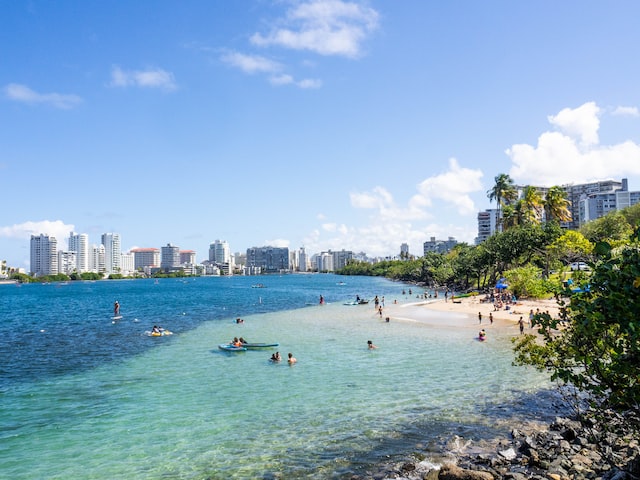
The Danger of Dealing with Unlicensed Caribbean Real Estate Agents
DISCLAIMER: This blog is only intended to shed light on unlicensed real estate agents in unregulated real estate markets. This is not a reflection of Caribbean real estate agents as a whole.
The Caribbean is one of the most beautiful and sought-after regions in the world, known for its crystal-clear waters, warm weather, and stunning landscapes. Many people dream of owning a property in the Caribbean, whether it’s for investment purposes or as a vacation home. However, the process of buying or selling real estate in the Caribbean can be complicated, especially if you deal with unlicensed real estate agents. In this blog, we’ll explore the dangers of dealing with unlicensed Caribbean real estate agents and what you can do to protect yourself.

First and foremost, it’s essential to understand that real estate agents in the Caribbean are required to have a license to operate legally, depending on the country. The licensing process involves passing an exam and meeting certain educational and professional requirements. Licensed agents are held to high ethical and professional standards and are required to adhere to strict rules and regulations. Dealing with unlicensed agents means that you’re working with someone who has not met these requirements, and there’s no guarantee that they’ll act in your best interest.
One of the biggest dangers of dealing with unlicensed Caribbean real estate agents is the risk of fraud. Unlicensed agents may not have the necessary expertise or training to handle real estate transactions properly. They may not be familiar with the legal requirements for buying or selling property in the Caribbean, which could result in costly mistakes or even legal disputes. In the worst-case scenario, unlicensed agents could use fraudulent tactics to cheat buyers or sellers out of their money or property.

Another danger of dealing with unlicensed Caribbean real estate agents is the lack of accountability. Licensed agents are regulated by professional bodies that can discipline them for unethical or unprofessional behavior. Unlicensed agents, on the other hand, are not subject to any regulatory oversight, which means there’s no way to hold them accountable if something goes wrong. If you have a dispute with an unlicensed agent, you may not have any legal recourse, which could be a significant problem if you’re dealing with a substantial financial transaction.
Are you looking to expand your real estate portfolio in Florida? Contact Daniel today!
Finally, dealing with unlicensed Caribbean real estate agents could result in missed opportunities. Licensed agents have access to a wide range of resources and networks that unlicensed agents don’t. They have connections to other real estate professionals, access to up-to-date market data, and can provide valuable insights into the local real estate market. By working with an unlicensed agent, you may miss out on opportunities to find the right property or negotiate a better deal.
In conclusion, dealing with unlicensed Caribbean real estate agents can be risky and potentially costly. To protect yourself, it’s crucial to work with, if possible a licensed agent (in another country) who has the necessary expertise, training, and regulatory oversight. For example, there are licensed real estate agents in the US and Canada that sell real estate in the Dominican Republic. Before you start working with an agent, make sure to do your research and verify their credentials if possible. Ask for references, and look for any red flags that could indicate that they’re not operating legally or ethically. By taking these steps, you can reduce the risk of fraud, protect your time, and increase your chances of a smooth real estate transaction in the Caribbean.
Take a look at our blog: The Problem with Cheap Real Estate
Questions You Should Be Asking

Here are some questions you need to be aware of in order to qualify your real estate agent in an unregulated market.
Banks/Lenders want the buyers to be qualified before they loan money so the buyers can purchase the property. A process of due diligence must be done on each potential investor before they are able to move forward in the purchasing process. As a buyer, are you preforming similar due diligence on your real estate in order to see if the agents are qualified?
You should be qualifying your real estate agent. It can save you a lot of future headaches.
Are they with a reputable broker with a global reach?
Is your agent taking part in continuous training?
How long have they been selling real estate?
How many properties have they sold?
Can the agent provide testimonials?
Is the agent knowledgeable of current market conditions?
Is the agent telling you the current reality of the market?
Are they moving with a sense of urgency to answer your questions, find out information you have requested and get things done?
Is your agent finding a property to suit your needs or just sending you random properties that don’t meet your specifications? – What some agents will do is only offer you properties outside of your price range or properties that don’t fit your criteria. Example, you want a 1 bedroom and all the agent will send you is 2-4 bedroom properties. The reason they are doing this is because they want a bigger commission check, they don’t necessarily care about your needs.
ROI: Can your agent provide actual numbers/paperwork to verify occupancy rates for residential rentals? – a good question you can ask them is where do they get their numbers/figures from? Are they just showing you figures they received from the developer or a 3rd party source?

Is your agent licensed in another country? This is a plus! This shows that the agent is familiar with the purchasing process and has experience in a regulated market. It’s always a plus to use a licensed real estate agent in another country in an unregulated market.
Check out our blog: Caribbean Real Estate ROI Myths
How To Protect Yourself
*Check For Red Flags: There are several red flags to watch out for when working with real estate agents in the Caribbean. These include pressure tactics, asking for upfront payments or fees, and being evasive or unresponsive to your questions. If you notice any of these red flags, it’s a sign that the agent may not be acting in your best interest. You may want to consider finding another agent or seeking legal advice before proceeding with any transactions.
*Hire A Local & Experienced Real Estate Attorney That Speaks English & Spanish: Working with a local real estate attorney can be an effective way to protect yourself when dealing with unlicensed real estate agents in the Caribbean. A local real estate attorney can help you navigate the legal requirements and regulations of buying or selling property in the country where the property is located. They can also review contracts and other documents to ensure that they are legally binding and protect your interests. By hiring a local real estate attorney, you can have peace of mind knowing that your real estate transaction is being handled legally and professionally.
Always hire your own independent real estate lawyer, you do not have to use the Notary or lawyer that the agent suggests.
*Hire A Reputable Real Estate Agent: A local real estate agent with a good reputation can help you navigate the market, find properties that meet your criteria, and negotiate a fair price.
*Conduct Due Diligence: Before investing in any property, conduct thorough research on the property, its location, and the surrounding area. Consider factors such as crime rates, infrastructure, and natural disasters that could affect the property.
*Verify Property Ownership and Title: Make sure the property you’re interested in is owned by the seller and that they have a clear title. Verify this information with the local land registry office.
*Inspect The Property: Before closing the deal, have the property inspected by a qualified professional. This can help you identify any issues that may require repair or renovation.
*Consider Local Regulations: Familiarize yourself with local regulations and laws that govern property ownership in the Caribbean. This can help you avoid any legal issues or disputes that could arise in the future.
Overall, protecting yourself in Caribbean real estate requires careful research, due diligence, and the help of trusted professionals and a experienced and knowledgeable Caribbean real estate agent. By taking these steps, you can minimize risks and increase the chances of a successful investment.
Tip: Federal law in Mexico allows the buyer to choose their own Notary. If you are buying property in the Riviera Maya make sure the Notary is working in your favor and know that you can pick your Notary to represent you.
Caribbean real estate can get pretty wild at times and we want you to be protected at all times.
Tip: Be careful with the more expensive real estate deals, many people will have their hand out wanting to get a piece of the deal.
Do your own research on the agent, lawyer, developer, past developments, verify testimonials, do your due diligence so you don’t get scammed. Remember, it’s your fault if you get scammed by a Caribbean real estate agent. With all the free resources and information on the internet now there is no reason it should happen.
What some Caribbean real estate agents will do is visit a local developer and find out about the homes/condominium that is being built. They will work out a “Gringo Price” with the developer (a significantly higher price in which to sell the properties at) and then go market the properties in Canada and the USA.
Looking for great properties in the Dominican Republic, look here!
Not all cases of people using unlicensed Caribbean real estate agents have turned out horrible. You just need to be careful, do plenty of research, study the market or whatever figures you can get concerning ROI and maneuver in a way that is beneficial to you. It’s very important that you ensure that your Caribbean real estate agent is fighting for you and does not have the best interests of the Seller in mind.
You will find a lot of good Caribbean real estate agents that are licensed and truly want to help you, provide you with good service and plenty of data to help you make the right decision, but there are also some bad apples out there that will take advantage of unsuspecting people. If you have any questions about purchasing Caribbean real estate or have any questions about a particular Caribbean real estate agent please fell free to reach out. We hope you received some value out of this blog.
